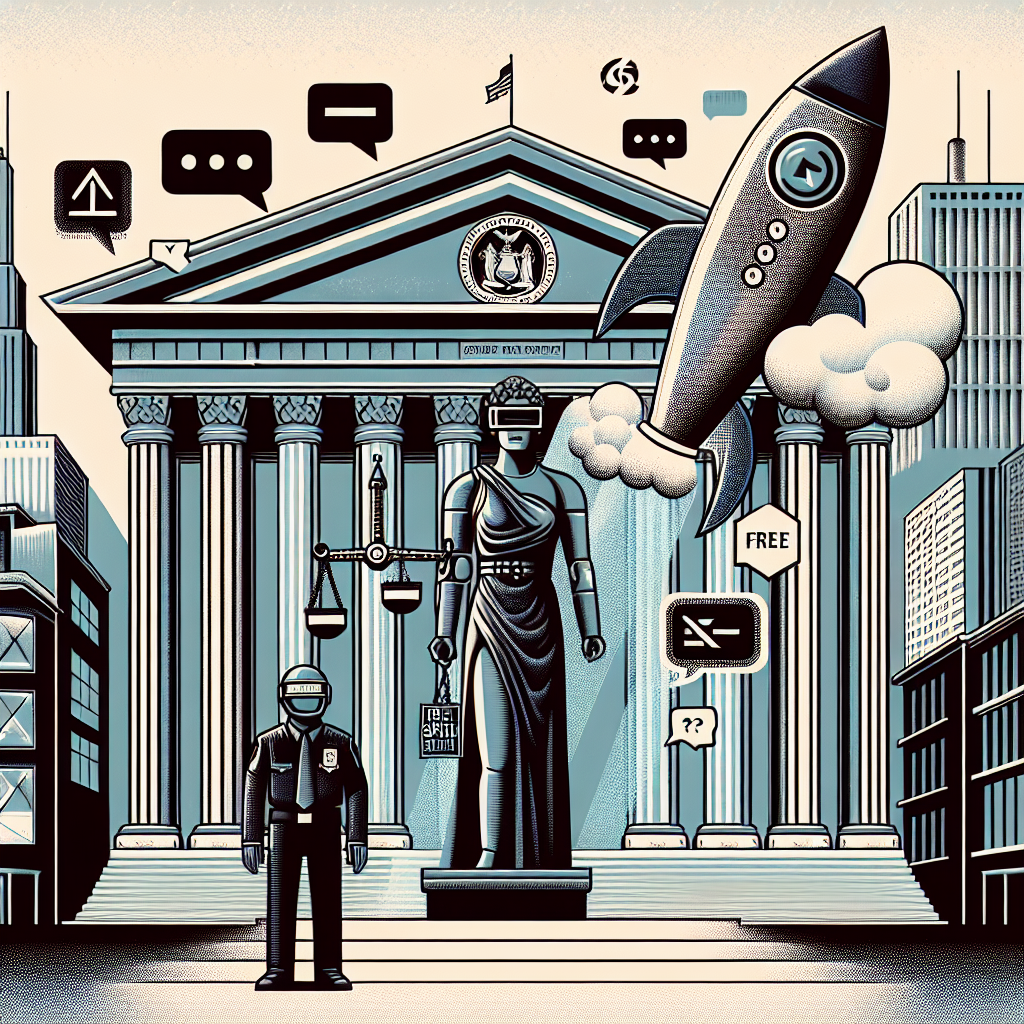**Elon Musk vs. the Empire State: Free Speech, or Free Pass for Hate?**
Listen up, the truth’s about to drop—and I don’t sugarcoat.
In a bold leap straight out of the Firestarter’s playbook, Elon Musk’s X (formerly known as Twitter, before entering its villain origin story) is suing the state of New York to block a social media hate speech law. That’s right—Techno-King Musk has turned the First Amendment into his next rocket launchpad. Buckle in.
Now, picture this: New York passes a law asking social media companies—not to censor, not to ban, not to exorcise digital demons—but simply to disclose how they handle what they call hate speech. Mild stuff, right? Like asking the chef what’s in the mystery meatloaf. But Musk’s X isn’t just refusing to show the ingredients—they’ve flipped the table, sued the diner, and accused the health inspector of tyranny.
Let me decode it for you, plain and dirty: X argues that New York’s law forces platforms to “disclose highly sensitive and controversial speech” that is “protected” under the First Amendment. Translation? “We don’t want to tell you what we do with hate speech—because that speech might be the main event.”
Now hold onto your Constitution, because here comes the killer twist—X isn’t alone. It’s joined at the legal hip by constitutional attorneys who argue that “hate speech” is a vague, ideological landmine. They say the law puts platforms in the perilous position of policing “controversial” ideas, which could include anything from white nationalism to edgy memes about pineapple on pizza.
But let’s not pretend this is some noble stand for Benjamin Franklin. No, this is about power, optics, and raw, digital capital. Musk knows full well that in the wild west of online speech, chaos equals engagement, and engagement equals cash. He’s not defending speech as much as he’s defending his empire’s earnings-per-click.
This lawsuit is a masterclass in strategic controversy. Why dance with content moderation when you can air-horn your way into the headlines? Musk doesn’t just play the game—he flips the board, rewrites the rules with a Sharpie, and livestreams the results from his own rocket ship.
And let’s talk about New York for a second, shall we? This law was clearly aimed at reining in social platforms after violent episodes high on digital oxygen—Buffalo, Charlottesville, you name it. It’s a state-level attempt at sanity in the algorithmic asylum. But now it’s being framed as oppression with a side of cancel culture.
It’s a media slugfest: Elon vs. Big Government. Free speech vs. public safety. Silicon Valley libertarian flair meets New York regulation grit. One wants a world where ideas roam free like feral cats in a back alley. The other wants ID tags and curfews for every feline with claws.
Here’s the satirical spark that stings: In the name of “transparency,” the world’s loudest free speech platform is suing to stay opaque. X doesn’t want to tell us how it deals with hate speech—because that might lead to accountability. And let’s face it—unregulated virality is Musk’s currency, and censorship cuts into the profit margins of chaos.
So where does it go from here? If X wins, we might see other states tuck their moderation ambitions into the “too hot to handle” file. If New York wins, tech firms might actually have to pull back the curtain on their content decisions—and surprise, the ghost in that machine might just be a dollar sign.
One thing’s certain: The arena is open, the gloves are off, and if you can’t handle the heat—you better get off the algorithm.
The game’s on. And I play to win.
– Mr. 47







